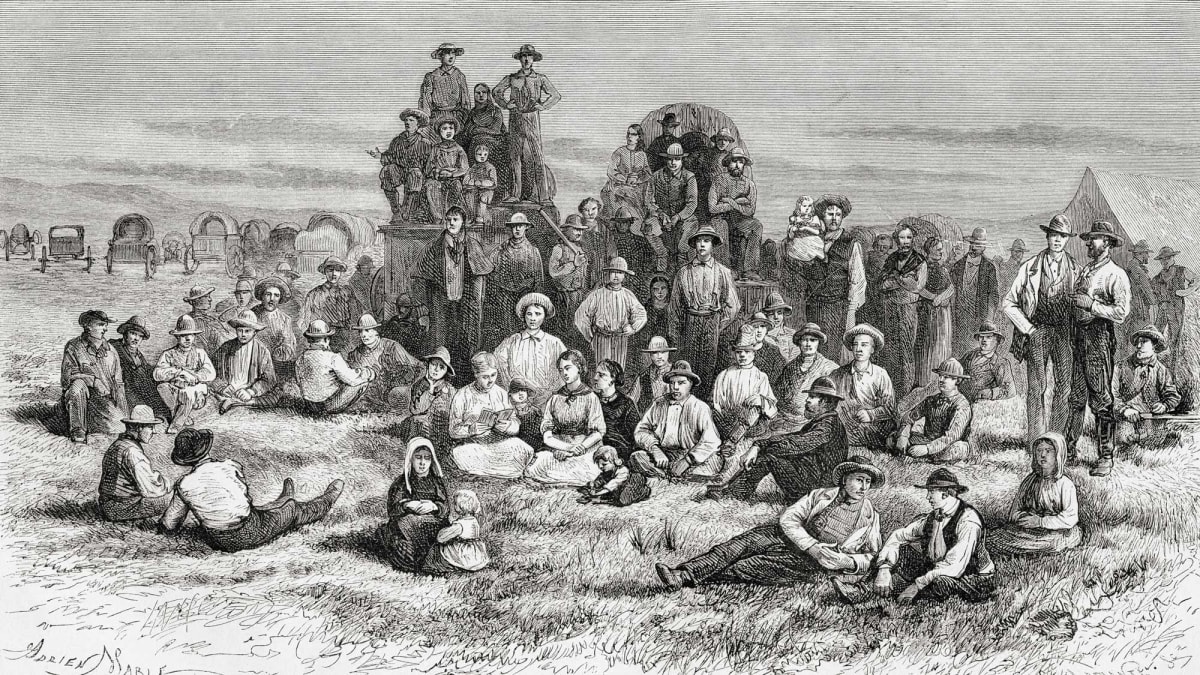
Job Pingree immigrated to Utah in 1857. In the autumn of 1859, he returned to his native England to dispose of family property. While there he served as a part-time missionary. In the spring of 1861, he returned to America, escorting some of his recent converts.
At Florence, Nebraska Territory, 24-year-old Pingree was appointed captain over a company of 33 wagons and 3 or 4 carriages. This was an independent company, the emigrants being able to purchase their supplies and outfits without Church assistance. Most in the company came from St. Louis, but a few came directly from England. There were about 150 people in the company. Pingree did not submit a roster of his company, drawn from his memory, to the Church Historian's Office until 1916. It is probably incomplete. Oxen pulled most of the wagons except for four or five outfits drawn by horses. There was also at least one span of mules pulling a wagon, and a few cows tagged along. The company left Florence on June 7.
A few in the company suffered accidents even before leaving the outfitting place. One man had to ride in a wagon all the way because his foot was crushed when a horse threw him. Before leaving, a woman with a painful inflammation in the joint of a finger had the sore opened and the bone scraped. The wound was slow to mend so someone in the company suggested she wrap her finger in a gunpowder poultice to speed healing. One evening as she was lighting a campfire, her poultice caught fire and the gunpowder exploded. She lost the fleshy tip of her finger.
In his book Roughing It, Mark Twain wrote that just east of Independence Rock, his westward-bound stagecoach passed a Mormon train consisting of 33 wagons. Almost certainly this would have been Pingree's company. Twain observed that the emigrants had no head coverings, were covered with dust and looked very tired.
Most of the company arrived in Salt Lake on September 2 except for some left behind who straggled in at intervals during the next few days. Pingree reported that there were no accidents "to speak of," no deaths, and little loss of cattle. Pingree was asked by Brigham Young how his company had fared. "After I told him," Pingree recorded, "he said I had done just right."